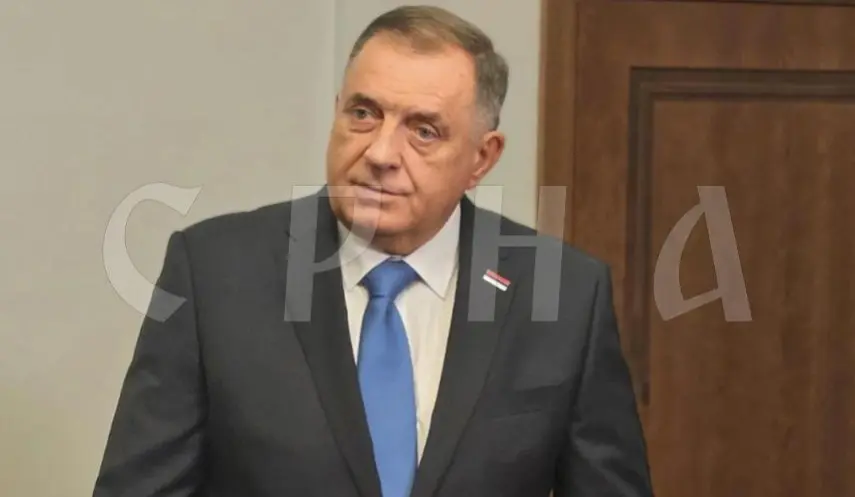DANKA MILAKOVIĆ: I'M 91 AND I STILL DREAM ABOUT BLOOD, SCREAMS AND MACHINE GUNS
NDH - crimes against Serbs /9/
06/29/2025
10:01
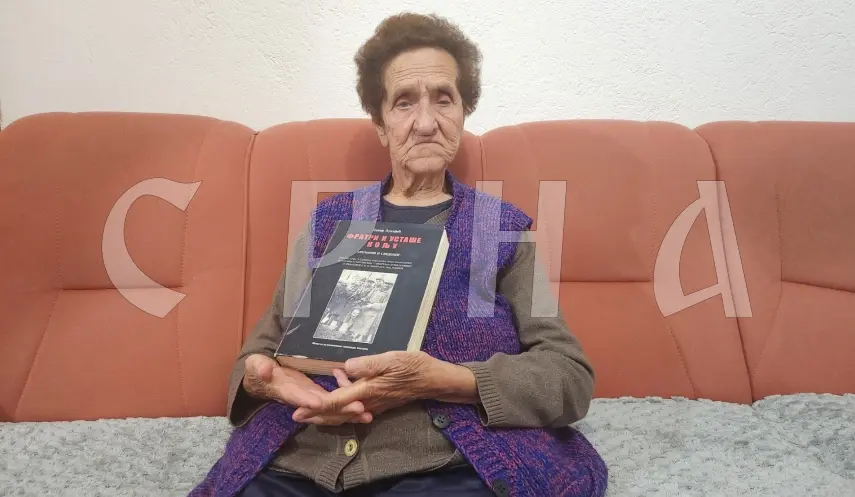
BANJA LUKA, JUNE 29 /SRNA/ - Danka Milaković, who as an eight-year-old girl survived the Ustasha massacre in February 1942 in Milakovići near Banja Luka, told SRNA that she was not seeking revenge, but wanted the truth to be known - that her Ustasha neighbors had committed a terrible, unimaginable crime, for which no one was punished.
Danka is now 91, but, as she says, the images of torture, killing, and the suffering of her family are still fresh in her mind, and she still dreams of blood, moans, and machine guns.
"It can never be forgotten, and that martyr's life is hard. Too hard. A great burden was on the back of an eight-year-old girl," said Danka.
Danka testifies to everything that happened on that fateful day - how she lost her mother, grandmother, and other closest family members, but also how she survived the horror as a little girl.
"When the massacre happened in the winter of 1942, I was at home with my grandmother Jovanka and my mother Todora and two other children, my two brothers, Bogoljub /6/ and Milenko /1/. My mother was 35 at the time. My father Stojan had gone into hiding. My grandmother Jovanka, my father's mother, told the men to run away. She said that they would do nothing to the children and women. There were three of us, children. Me, Bogoljub, and Milenko," said Danka, who still lives in her Milakovići, which was almost wiped out in that massacre.
She remembers that everyone was scared when they saw numerous Ustashas heading towards their village from Ivanjska that morning.
"When we saw that many Ustashas were coming from Ivanjska, all blackened in the snow, we were scared. Grandma said that we should also flee from our house to the house of Mlađen Milaković. Mlađen's house is right above ours. Mladjen was in Germany in slavery. And grandma said to my mother Todora - `Let's go, sister-in-law, to Mlađen's Petra. She has a letter from Germany, from Mlađen. Nothing will happen, you know,`" said Danka.
She said that her mother obeyed, so they went to the Mlađen's house, where there were five children and his wife Petra.
"There was a Catholic woman with them, their daughter-in-law. She lived in Ivanjska. Her husband was Gavro, a railway worker. He was blinded around Ilindan in 1941 and killed in Mišin Han. Yes, he was a Serb, and she was a Croat, Roza. Then she couldn't be alone in Ivanjska, so she came there with her in-laws. And she tells us when we approach the house, my mother, grandmother and we, the children - `Come on in! Don't be afraid. I'll bring them back. I'm Šokica.`"
It's as if she said it yesterday, I know that even now. And she came out in front of them, when they were coming. And we didn't see what happened until the smoke cleared, and the smoke was from machine gun fire. And there was a soldier, lying on the porch. We thought he was a soldier, because she had that long coat on, like a soldier's. In fact, they killed her first - Roza. She came out in front of them to take them back, and they killed her. I don't know what she told them. They knew that she was Šokica, because they were Ustashas from Ivanjska. They knew her well. They killed her, maybe because she married a Serb," Danka said.
She said that her memories of that day are as vivid as if it happened yesterday, and that the Ustashas came to the doorstep of the house and forced them to enter.
"There was a group of them. They were wearing helmets, like the Ustashas wore, that's how they were recognizable. And they were carrying rifles and saying: `Come on, come on, come on! Come in!` They were chasing us into the house, into the room. Some had already taken their rifles off their shoulders.
We, the children, are going. We are pulling our mother by the skirt. The house is full of us. There were three parts, so to say. Petra, the woman in whose house we were, stood before them. They sent us to the room with a bed and a table. There were two doors in the house. They put trestles at the windows and one at the door of the room where we were. I had never seen a machine gun before. They put machine guns on the trestles," said Danka.
MACHINE GUN FIRED, THEY ALL FELL DOWN
Danka also recalls the Croats' conversation with the women they forced into the room:
"They ask - `Where are your people?` and curse at King Peter. Petra immediately put her hand in her bosom, and took out a letter. She showed it to them and said: `Here is mine!' He raised his voice and told her: `Back off!,` again cursing.
"I know everything as if it was yesterday. She just came back from the threshold into the room. And immediately fell, just after she turned away from him. What happened, I don't know. She only fell down. The machine gun fired! It shoots at all of us. Only she falls first. And everyone in the room were killed. Only my mother wasn't," said Danka.
She recalls that mother took her and the brothers, and that they stood beside the fireplace.
"There was that black `fiaker` stove. And there was wood stacked underneath. And so there was the door frame right there. And so, my mother, she grabbed the three of us. She was holding the little one in her arms, and she was holding the two of us next to her. I was behind the wood. And so we stood. Then someone came in through that same door and killed my mother. She fell down immediately. When I saw it, my eyes just went black. The child fell out of her arms.
We couldn't see anything in the house because of the smoke. It was clogged up everywhere. When the smoke came out, I saw that no one was moving anywhere. We all fell. That guy thought he killed everyone. There were fifteen of us in the house. Fourteen were in the room. Roza was outside, in front of the house. It was about twelve o'clock. I know, around eleven we made lunch, to supper. They came and that lunch was left.
"And they didn't care whoever was hit. They didn't look. They left immediately. Four of us were left alive, we weren’t hurt. That's me, my two brothers, Bogoljub, six years old, and Milenko, seven months old, and Mlađen's Mrza, eight years old, my peer," said Danka.
She remembers that when the smoke in the room cleared, she was the first to regain consciousness and get up, taking her little brother Milenko.
"The seven-month-old baby is still alive. I take the baby and call the mother. I said: `Get up, mother! Give the baby to suck!` The baby is screaming. The mother is dead. And what am I going to do? Foam is hitting the baby's mouth, crying. She won't get up. I gently take the mother and unbutton her, then give the baby to eat. I don't realize that she's dead. The baby is sucking the mother and is quiet for a while. Then the baby screams again," said Danka.
DANKA AND TWO LITTLE BROTHERS LIVE AMONG DEAD IN HOUSE OF HORROR, USTASHAS RETURNED TWICE
According to Danka's memory, she heard voices and talking again, looked out the window and saw that the Ustashas were coming back, approaching the house.
"I just thought, if that child cries, we're done. And I hide them in my arms and lie over them, just among those dead people. They came back twice. Everything was open, all the doors, all the windows. They looked and said - `It's done!`" she says.
She said that her little brother, fortunately, kept quiet, as if he knew that he should, but he started crying again as soon as Ustashas left.
"The child continues crying. And the foam appeared again. As if it's going to die. We were like that until dark. It was cold. No fire, no lock. The blood has curdled. Like this, a fist or more thick. Well, yes! And it just sways, like a liver.
And I see them a little further on, where our house was. They go up the porch and take two wedding banners and carry them on their shoulders, like wedding guests. And they sing: `O–oooo, o–oooo, o–oooo!` They mocked our wedding guests.
Oh, I'm thinking, what am I going to do? I took that little child and then wrapped it up and carried it and carried it. In a house full of blood and dead people, I had to, I had nowhere to go. I kept thinking about whether I could fall asleep. Oh, no way! Just screaming and whining. Hungry. Cold. And so on all night long," Danka recalls.
She stated that when dawn broke, she and her brothers were still in the house of horrors.
"There was no one. The other two children, they're older. I was eight years old, and they were six. They're with me. I'm among them there in the room. Our legs are covered in blood. I was all wet and sticky with blood. My entire skirt was bloody, as I lay there among them in a puddle. The two of them are also peeking out, crying quietly and just looking at me. What else are they going to do!
As dawn broke and everything was calm, the Ustashas left, and my father appeared. He looked around, not knowing what had came on him, and us who survived. My aunt and grandfather appeared in the evening. They remained hidden in the ditch and that's how they survived," Danka testified.
She said that they came back to the house later, and started anew.
"Oh, how I know that. God forbid, I was an eight-year-old girl and I had to be a mother to my brothers. Later, my father got married, and my stepmother, like a stepmother, tormented me, as if I hadn't had enough of the torment. That's how we survived and grew up," said Danka.
MEMORIES OF HORROR HAVE BEEN INCREASINGLY VIVID OVER YEARS
Danka, with tears in her eyes and clenched fists, said that there is not a day or night that goes by that those images don't appear before her eyes. She said that the older she gets, the more vivid the memory becomes.
"The traumas remain. I'm 91, but it's all always with me, as if it's happening right now as I'm telling this story. No one was ever punished or held accountable. We all knew each other, we were neighbors. But they tortured us to the point that a normal person can't even imagine," said Danka.
She testifies that the Ustashas went so far that killing alone was not enough for them, so they first tortured the women so much that they begged for death.
"They cut their breasts. They stabbed them with a bayonet, then twisted them to make big holes, a skewer could go through. They moaned, screamed, and they only made the wounds worse. Children were butchered with knives, and then their bodies were thrown to pigs to eat," says Danka.
Danka Milaković is not just a passive witness and a child who survived the massacre, she is a living conscience. In her tears, fists clenched in pain, and a voice that trembles as she speaks, is gathered everything that must not be kept silent.
She carried the burden of blood, death, hunger, her mother's silence and her brother's cry. She still carries it today. She notes that she is not seeking revenge, but she is seeking the truth. She is not seeking, she says, regret, but for someone to finally say - "We know, we have heard, we will remember, so that we would not walk through life past monuments and pits without knowing what lies beneath". /to be continued/
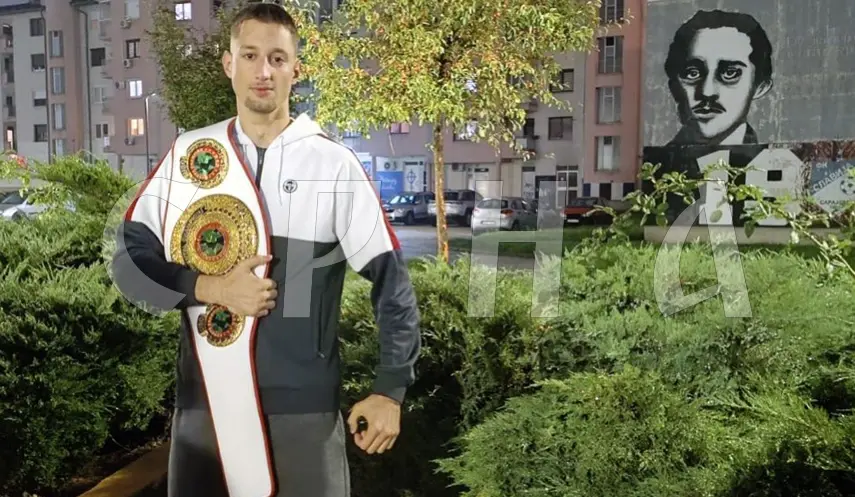
RECEPTION HELD FOR NEW EUROPEAN BOXING CHAMPION IN UBO VERSION
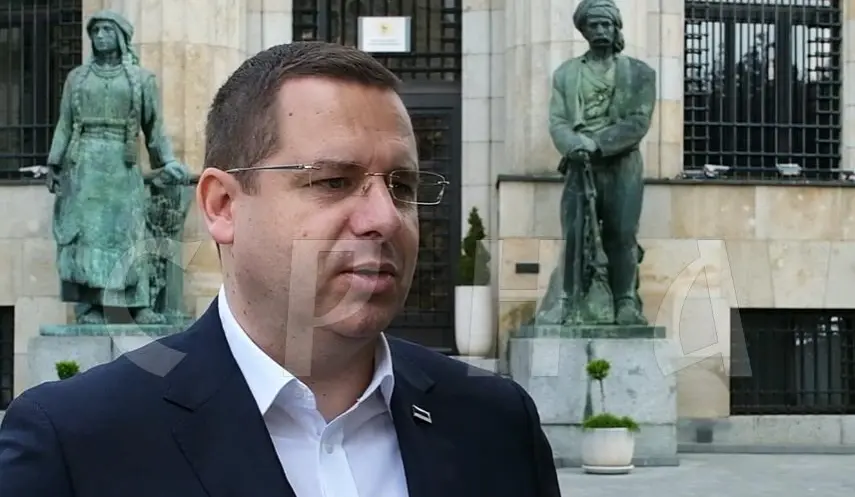
KOVAČEVIĆ: SDS AND OPPOSITION WEREN'T LOOKING FOR PRESIDENTIAL CANDIDATE, BUT FOR SOMEONE WILLING TO LOSE ELECTIONS
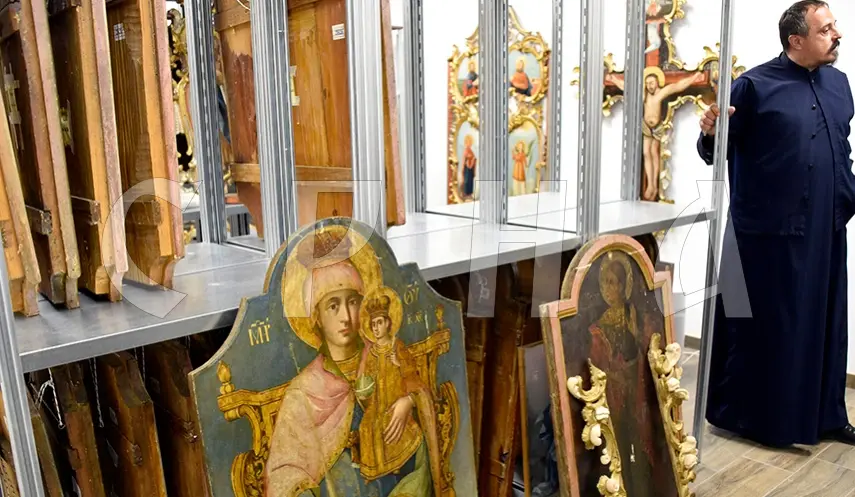
BISHOP JOVAN: BISHOP'S PALACE IN PAKRAC HAS RICH CULTURAL LIFE
